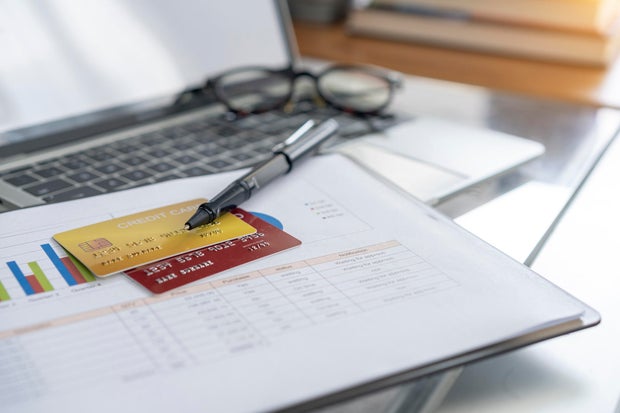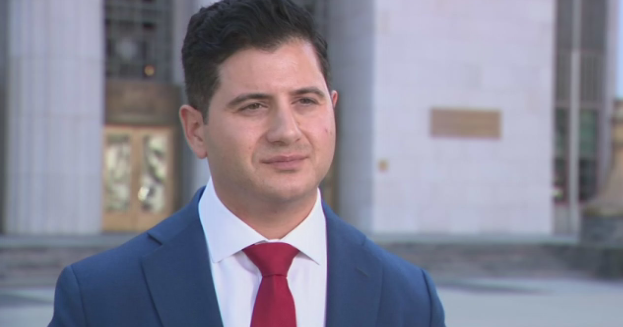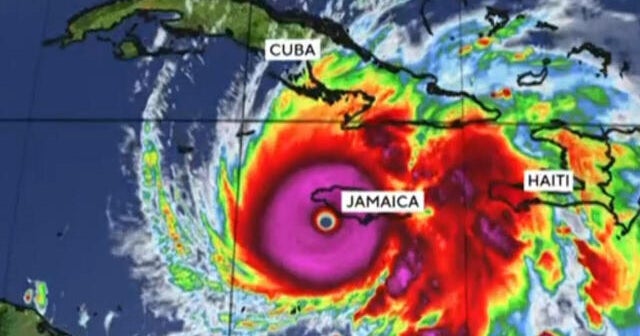 Debt settlement and charge-offs can leave marks that take years to fade, but one has a much more detrimental impact on your finances.
Virojt Changyencham/Getty Images
Debt settlement and charge-offs can leave marks that take years to fade, but one has a much more detrimental impact on your finances.
Virojt Changyencham/Getty Images
Falling behind on credit card payments is a common issue borrowers are facing right now, but when it happens, it can trigger a chain reaction that's hard to stop. At first, it might mean being charged a few late fees and dealing with collection calls. But if months pass without payment on the account, your credit card company may eventually give up on collecting the balance and charge off what's owed. That may sound like it would offer relief, but it doesn't. You still owe the money, and a charge-off leaves a serious mark on your credit report, one that can take years to recover from.
Some borrowers opt to take a different route when they've fallen behind on their credit card payments, though. Rather than allowing the debt to compound and be charged off, they opt for debt settlement instead. When pursuing debt settlement, the process involves negotiating with your creditors to try and pay less than what you owe, either on your own or with the help of a professional debt relief company. While this option can also hurt your credit, it offers something a charge-off doesn't: control over the outcome.
So, which is worse: having a credit card charged off or going through debt settlement? Both have consequences, but the differences between them can significantly impact how long it takes to rebuild your credit and how much you ultimately pay back.
Start tackling your unpaid credit card debt today.
Is a credit card charge-off worse than debt settlement?
In most cases, a credit card charge-off is more damaging than pursuing debt settlement. When a creditor charges off your account, it's declaring the debt as a loss for accounting purposes. This usually happens after about 180 days (or six months) of nonpayment. The creditor can then sell your debt to a third-party collection agency, which can continue to pursue you for payment.
That charge-off will then stay on your credit report for seven years from the date of your first missed payment. Even if you pay the balance in full at a later date, the notation remains, though it can be updated to "paid charge-off." Either way, it signals to lenders that you defaulted on a financial obligation, which is a red flag that can make it harder to qualify for credit in the future.
By contrast, debt settlement allows you to negotiate a partial repayment of your balance. As part of this process, the goal is to have your creditors agree to accept a lump-sum payment that's less than what you owe, typically lowering your balance by 30% to 50%. The account will still be marked as "settled for less than the full amount," but unlike a charge-off, it reflects that you took responsibility for resolving your debt.
While both options can cause your credit score to drop, often by 100 points or more, debt settlement also offers a clearer path toward financial recovery. You can often complete a debt settlement program in as little as 24 to 48 months, at which point you'll have no remaining unsecured debt and can start rebuilding your credit immediately. A charge-off, however, can lead to collection lawsuits, wage garnishments and years of ongoing credit damage.
So, the short answer is that a charge-off happens to you, while a debt settlement is something you actively pursue. That difference in control, though, can make all the difference in how fast you bounce back.
Find out how you can get some relief from your high-rate debt now.
How to mitigate the damage caused by a credit card charge-off
If your account has already been charged off, don't panic. While you can't remove the mark from your credit report, you can take proactive steps to limit the damage and rebuild your creditworthiness over time. Here's how to do that:
Verify the accuracy of the charge-off. Start by checking your credit reports from all three bureaus (Experian, Equifax and TransUnion) at AnnualCreditReport.com. Make sure the balance, dates and creditor name are correct. If you spot any discrepancies, file a dispute to correct them. Even small reporting errors can have a big impact on your credit score.
Pay the balance (or settle it). The debt doesn't disappear after a charge-off, so if you can afford to pay the balance in full or settle for less, doing so prevents further collection activity and demonstrates good faith. Once it's marked as a paid charge-off, it may still hurt your credit, but it will have less impact than an unpaid charge-off would.
Consider credit counseling. If you're struggling with multiple charged-off accounts or high balances, enrolling in a debt management program through a credit counseling agency may help consolidate your debts into one manageable payment while lowering your interest rates and fees. These programs make repayment feasible, helping you avoid future charge-offs.
Rebuild your credit strategically. After resolving the charged-off account, focus on rebuilding your score. Use a secured credit card or credit-builder loan, make small purchases and pay them off in full each month. Over time, these positive payment histories will outweigh the older negative marks.
The bottom line
A credit card charge-off and debt settlement both signal that you're facing serious financial distress, but one gives you a chance to take control. A charge-off represents a default with no resolution, while a debt settlement shows that you faced your debt head-on and took steps to resolve it.
If you're already facing charge-offs or collections, try to act quickly — verify what you owe, explore your settlement or consolidation options and create a plan to rebuild your credit from here. The sooner you take action, the sooner your credit and your overall financial health can begin to recover.
Edited by Matt Richardson


















































